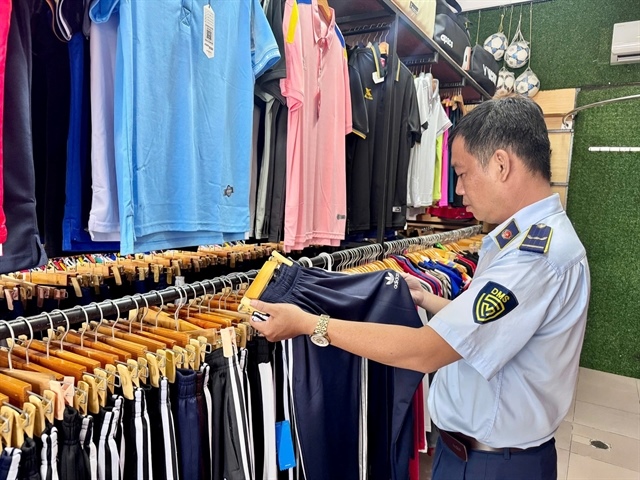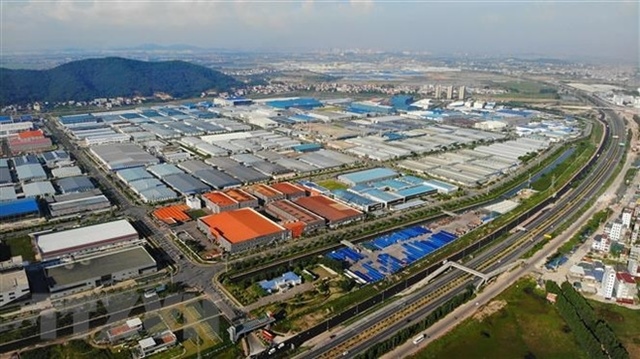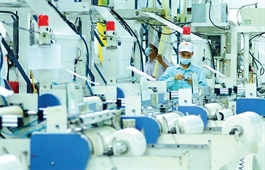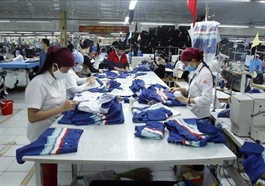Inadequacies in employee governance at foreign companies
Inadequacies in employee governance at foreign companies
While the number of strikes and employees halting work has been reducing at foreign-invested enterprises, there are still cases of abject mistreatment – even at some of the largest names in the industry.
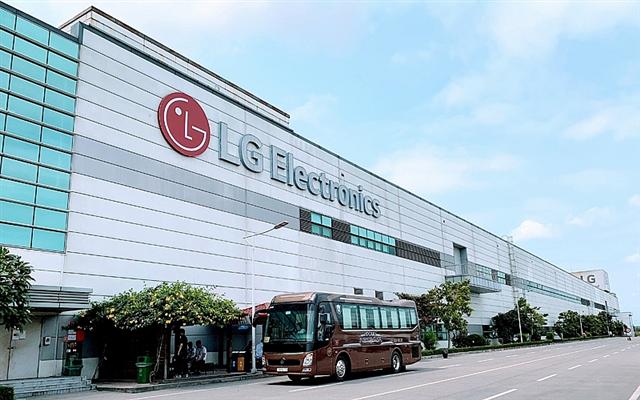
Many foreign companies are maintaining toxic work environments
|
According to a report by the Vietnam General Confederation of Labour (VGCL), there were 36 cases of strikes and employees collectively halting work in the first quarter of this year, 12 cases fewer than the same period last year. According to a VGCL representative, their reasons were mainly bonus, salary, allowance, and social insurance.
The findings show that major business and manufacturing hubs such as Hanoi and Ho Chi Minh City have seen significantly fewer strikes or employees collectively halting work than last year. In Ho Chi Minh City in 2020, there were 11 cases with the participation of 4,886 employees, much better than the figure in 2019 when there were 15 cases with the participation of 6,609 people.
However, the VGCL also reported local increases in strikes and employees collectively halting work in the first quarter in provinces like Binh Duong. There were 10 cases with the participation of 3,400 employees, up three cases and 1,000 employees on-year. Eight of these cases were reported at foreign-invested enterprises from South Korea, Taiwan, and China.
“Figures about the number of strikes and employees halting work provide a great deal of insight, however, there remain a great many toxic workplaces where employees have to put up with stress and mistreatment without sending complaints to the authorities,” a VGCL representative said.
LG is a good example of hits. Over the past year, dozens of senior employees of LG Electronics Vietnam Haiphong have quit with complaints of stress and unfair (in cases straightout abusive) treatment. Some of the resigning employees pointed intrusive checks and audits by the company, affecting their performance and causing them a lot of stress.
In one case, an employee of more than 10 years had his desk searched and personal items removed by company staff in their absence, while others said the company went through their emails and computers, violating their privacy rights.
Others, who are still working at LG, told VIR that there are more internal troubles but they refused to divulge details as they are still working there.
In a talk with VIR, Thanh Huyen, previously head of the marketing division of the company who resigned half a year ago, said, “I don't know if the company does not know the local laws or if they deliberately break them, but there is no respect for employees' rights. Maybe they are just trying to pressure us into quitting,” she said.
However, discussing the issue with VIR, Ho Thi Kim Ngan from the VGCL’s Labour Relations department said that it has yet to receive complaints from LG employees.
“We will collaborate with the department in Haiphong to explore these claims and support employees if necessary. If the corporation's or the local trade union cannot settle concerns, employees should send a complaint to VGCL to get support directly or indirectly to protect their rights,” she emphasised.
Last week, LG announced pulling the plug on its global smartphone business. This comes after the division reported nearly six consecutive years of losses totalling around $4.5 billion, according to Reuters. The business difficulties and the effects of the COVID-19 epidemic may offer a partial explanation for LG's reported mistreatment of its employees, as well as raise questions about the future of workers at LG’s smartphone manufacturing factories.
LG is one of the numerous foreign-invested companies running into trouble, especially South Korean, Taiwanese, and Chinese ones, which are among the biggest foreign investors in Vietnam. Some foreign enterprises were reported a few years ago to be imposing overly strict rules for employees such as limiting the number of bathroom breaks allowed in a day (Daiwa Plastics, Shilla Bags, Young Woo) while some strikes also took place over benefits paid by Youngor Smart Shirts Vietnam (Nam Dinh province) in January, Hyundai Vietnam (Khanh Hoa province) last December, and Luxshare-ICT Vietnam (Bac Giang province) last September, among others.


